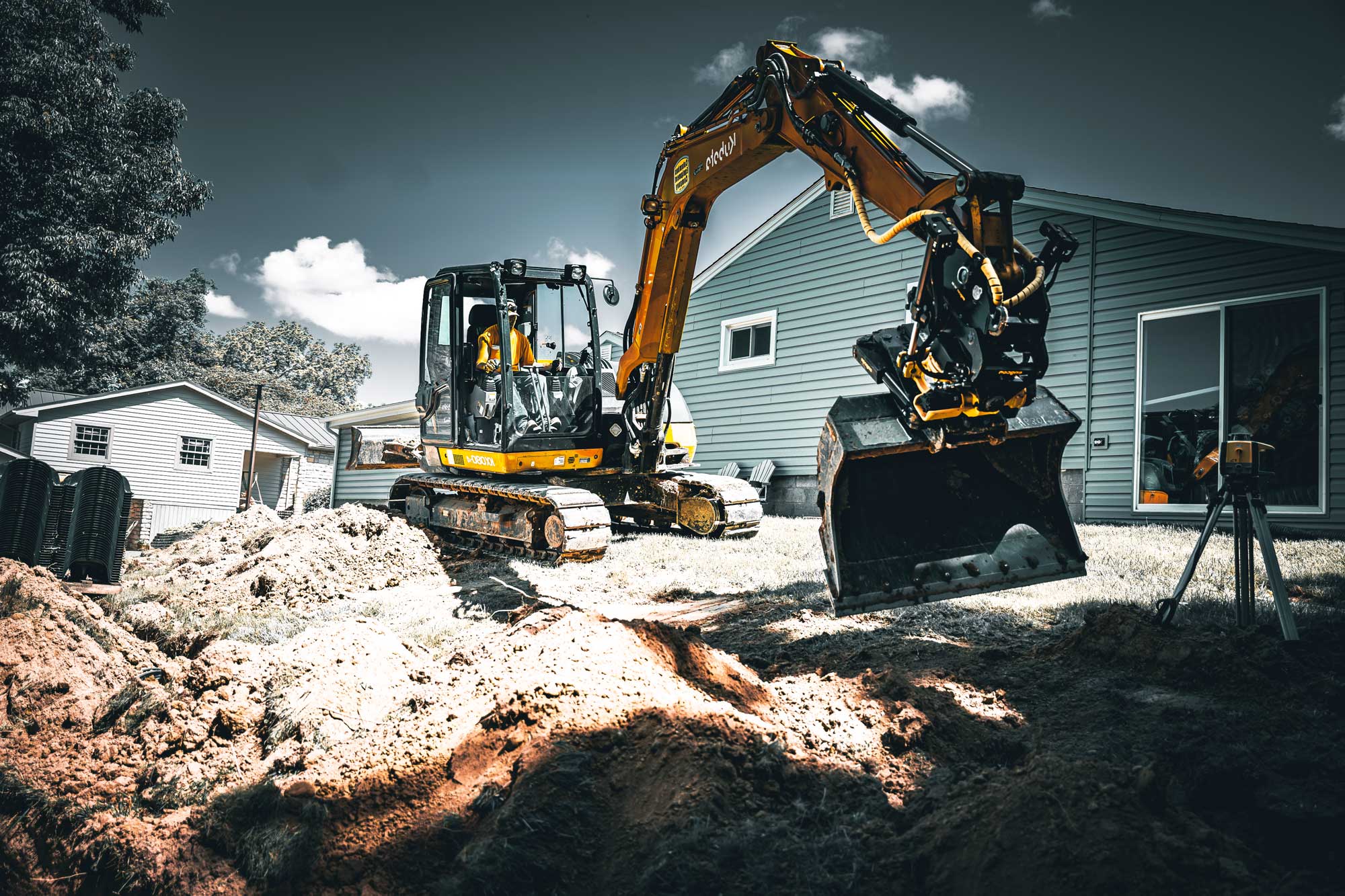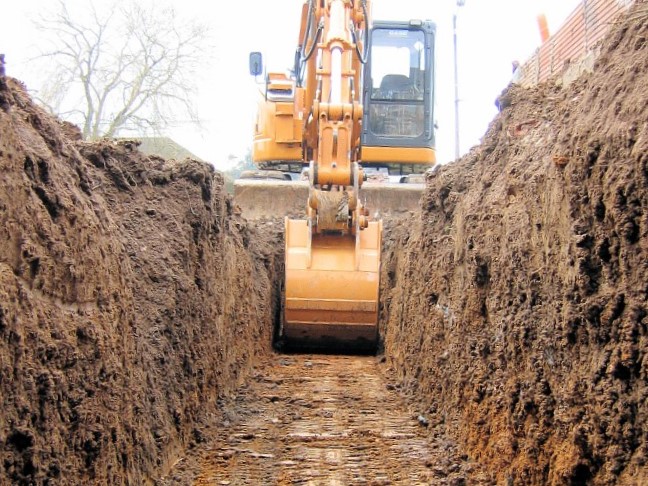Revealing the Art of Excavation: Pro Tips for Safe and Effective Excavating
As dirt is turned and earth is relocated, the complexities of excavation expose themselves, demanding a keen understanding of devices, soil structure, safety procedures, and environmental factors to consider. The expertise needed to navigate these aspects effectively can suggest the distinction between an effective excavation task and a prospective calamity.
Significance of Correct Tools
To guarantee the safety and performance of any type of excavation project, making use of the ideal equipment is vital. Excavation tasks differ in extent and complexity, ranging from little household landscape design tasks to large construction tasks.
Excavators are basic pieces of equipment in any kind of excavating procedure. These functional equipments been available in different dimensions to suit various job requirements. Miniature excavators are perfect for smaller sized tasks, while larger excavators tackle more substantial tasks successfully. Backhoes are another vital equipment kind, integrating the features of a loader and an excavator in one equipment. They are important for jobs requiring flexibility and ability to move.
Besides excavators, other crucial tools consists of dump plates, bulldozers, and vehicles. Unload vehicles are necessary for getting rid of and delivering excavated materials, while plates are made use of for digging narrow and deep trenches. Bulldozers master tasks that call for pushing big amounts of soil or particles. By purchasing the appropriate tools, excavation jobs can be completed securely, on schedule, and with precision.
Comprehending Soil Composition
A comprehensive understanding of dirt composition is fundamental for implementing excavation jobs with accuracy and security. Recognizing the various kinds of soil is crucial as it straight impacts excavation methods, tools choice, and general job efficiency.
Silt bits are smaller than sand however larger than clay, using modest drainage and cohesion. Organic issue, such as decomposing plant material, influences soil fertility and stability.
Before beginning excavation, carrying out soil tests to determine its structure and qualities is important. This details helps in choosing the ideal equipment, carrying out safety actions, and establishing excavation techniques customized to the particular soil problems - lancaster trenching. By recognizing dirt composition, excavation experts can improve job results while ensuring safety and security and adherence to ideal methods
Precaution and Methods
Comprehending soil make-up is the foundation whereupon security procedures and procedures for excavation projects are constructed, making sure the well-being of employees and the success of the undertaking. When it involves safety and security during excavation, there are numerous vital actions that need to be applied to alleviate risks and protect against mishaps.
Most importantly, before any kind of digging begins, a comprehensive inspection of the site need to be carried out to recognize any prospective hazards such as underground energies, unstable soil conditions, or nearby frameworks that can position a risk. It is vital to have an experienced person oversee the excavation procedure to ensure that all security procedures are followed purely.
In addition, all workers included in the excavation has to be correctly educated in safe digging methods and the correct operation of equipment. By sticking to these safety and security measures and try these out procedures, excavation jobs can be finished successfully and without incident.
Efficient Excavation Preparation
When embarking on an excavation task, careful preparation is vital to ensure efficiency, security, and successful results. Efficient excavation preparation includes a number of key Recommended Reading steps that are crucial for the smooth execution of the project.
Once the website evaluation is complete, the following action is to develop a clear timeline and schedule for the excavation activities. This includes determining the sequence of tasks, tools demands, and manpower allocation. Correct scheduling helps stay clear of hold-ups and guarantees that the task remains on track.

Furthermore, communication amongst all team participants is vital during the preparation phase. Clear regulations, regular updates, and efficient control are vital for an effective excavation job. By spending time and effort in careful planning, excavation teams can significantly improve performance, lessen risks, and attain successful end results.

Managing Ecological Factors To Consider
With raising emphasis on environmental sustainability in building methods, handling ecological factors to consider has actually come to be a vital element of excavation jobs. Excavation activities have the prospective to affect the surrounding atmosphere with dirt erosion, sediment runoff, environment interruption, and contamination of water resources. To mitigate these threats, it is important to carry out best methods that prioritize environmental management.

Furthermore, correct waste administration is critical to avoid dirt and water contamination. Implementing treatments for the disposal of hazardous products, recycling of waste products, and decreasing using dangerous chemicals can substantially reduce the environmental influence of excavation jobs. By incorporating these techniques right into excavation preparation and implementation, construction firms can make certain that their projects are not only safe and efficient but likewise ecologically liable.
Conclusion
To conclude, understanding the art of excavation requires a complete understanding of proper devices, soil structure, precaution, and reliable planning. By adhering to these guidelines and considering environmental aspects, excavations can be performed securely and effectively. It is crucial to focus on safety and performance in every excavating job to guarantee effective outcomes.
As soil is turned and earth is moved, the complexities of excavation expose themselves, requiring an eager understanding of equipment, dirt navigate to this site structure, security procedures, and environmental considerations.To ensure the security and performance of any kind of excavation task, utilizing the appropriate tools is extremely important.A comprehensive grasp of dirt composition is fundamental for carrying out excavation jobs with precision and safety and security. Understanding the different types of dirt is vital as it directly influences excavation approaches, devices option, and overall project effectiveness. By understanding soil make-up, excavation professionals can improve project end results while ensuring safety and security and adherence to finest techniques.